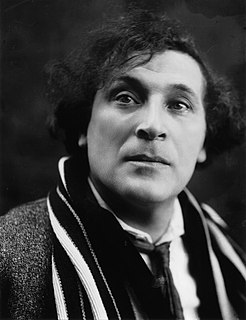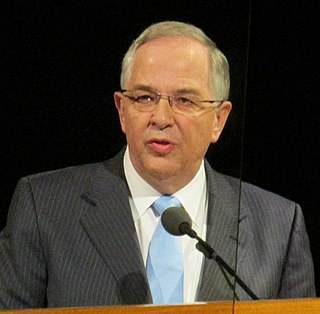A Quote by Pope Francis
You have a specific and important mission, that of keeping alive the relationship between the faith and the cultures of the peoples to whom you belong. . . . [W]e have to follow Christ along the concrete path of our daily lives so that he can transform us.
Related Quotes
In spite of everything, there is still no more wonderful vocation than to continue to tolerate events and to work on in the name of our mission, in the name of that spirit which lives on in our teaching and in our vision of humanity and art, the spirit which can lead us Jews down the true and just path. But along the way, peoples will spill our blood, and that of others.
The celebration of Lent, in the context of the Year of Faith, offers us a valuable opportunity to meditate on the relationship between faith and charity: between believing in God - the God of Jesus Christ - and love, which is the fruit of the Holy Spirit and which guides us on the path of devotion to God and others.
Faith and daily life, faith and work-these are not separate things. They are one and the same. To think of them as separate-that faith is faith, and work is work-is theoretical faith. Based on the recognition that work and faith are one and the same, we should put one hundred percent of our energy into our jobs and one hundred percent into our faith, too. When we resolve to do this, we enter the path of victory in life. Faith means to show irrefutable proof of victory amid the realities of society and in our own daily lives.
In the doctrine of Providence, we have a specific Christian confession exclusively possible through faith in Jesus Christ. This faith is no general, vague notion of Providence. It has a concrete focus: ‘If God is for us, who is against us? He that spared not his own Son, but delivered him up for us all, how shall he not also with him freely give us all things?’ (Rom.8:31, 32).
Whenever we choose to come unto Christ, take His name upon us, and follow His servants, we progress along the path to eternal life. In our mortal journey, it is helpful to remember that the opposite is also true: when we don't keep the commandments or follow the promptings of the Holy Ghost, our opportunities are reduced; our abilities to act and progress are diminished.
... we did decide to trust Christ, but the reason we made that decision is that God had first made us spiritually alive. ... God comes to us when we're spiritually dead, when we don't even realize our condition, and gives us the spiritual ability to see our plight and to see the solution in Christ. God comes all the way, not partway, to meet us in our need. When we were dead, He made us alive in Christ. And the first act of that new life is to turn in faith to Jesus.
There are two gods. The god our teachers teach us about, and the God who teaches us. The god about whom people usually talk, and the God who talks to us. The god we learn to fear, and the God who speaks to us of mercy. The god who is somewhere up on high, and the God who is here in our daily lives. The god who demands punishment, and the God who forgives us our trespasses. The god who threatens us with the torments of Hell, and the God who shows us the true path.
There are two gods. A god who casts us off because of our sins, and a God who calls to us with His love.
Because we love the Lord, we should be spiritually sensitive to moments when the powerful and important truths of the gospel can be shared with others. Perhaps more importantly, however, we should seek at all times to purify ourselves and to lead such worthy lives that the Light of Christ emanates from us in all that we say and do. Our day-to-day lives should stand as immutable witness of our faith in Christ.
As Indigenous peoples, we know there is more to the world. We know spirits exist. We know as women, because we're especially attuned to this kind of knowledge, that spirits exist and have a presence in our lives. Some of us are gifted and can communicate with the spirit world. Not everyone has that gift and can perceive the borders between the living and the dead and our society actively discourages us of exploring the knowledge of what many of us have already always known in our cultures.
Our struggle to put first things first can be characterized by the contrast between two powerful tools that direct us: the clock and the compass. The clock represents our commitments, appointments, schedules, goals, activities - what we do with, and how we manage our time. The compass represents our vision, values, principles, mission, conscience, direction - what we feel is important and how we lead our lives. In an effort to close the gap between the clock and the compass in our lives, many of us turn to the field of "time management."
Perfection does not come in this life, but we exercise faith in the Lord Jesus Christ and keep our covenants. President Monson has promised, "Your testimony, when constantly nourished, will keep you safe." We push our spiritual roots deep, feasting daily on the words of Christ in the scriptures. We trust in the words of living prophets, placed before us to show us the way. We pray and pray and listen to the quiet voice of the Holy Ghost that leads us along and speaks peace to our soul. Whatever challenges arise, we never, never leave Him.


































